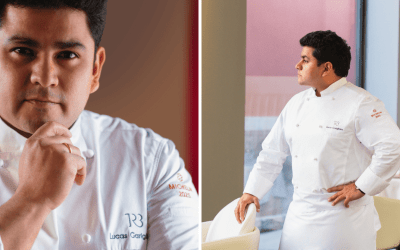After making the cut as commis chef, mastering the stations as a chef de partie, and developing your leadership skills as a sous chef, you should be ready for the final frontier of the kitchen career path. But, working as an executive chef will put your culinary and management abilities to the test like never before. Are you ready for the challenge?
What is an executive chef?
The executive chef, also known as head chef or chef de cuisine, is the head honcho in the kitchen. They are the highest in the brigade and responsible for overseeing everything that happens in a kitchen, both from a culinary and staff management perspective.
What does an executive chef do?
The day-to-day responsibilities and duties for an executive chef will change depending on the type of environment you are working in. You may be in charge of a small restaurant kitchen with a lean staff producing everything on the menu, or a large kitchen with many different stations, chefs, and egos to manage.
To succeed as a head chef you need strong leadership instincts so you can delegate tasks and calmly solve problems as they arise. Regardless of where you work the duties for a head chef are likely to include:
- Creating and setting prices for the menu
- Meeting with other managers and owners
- Hiring and training new employees
- Keeping up to date with current culinary trends
- Sourcing food & kitchen supplies and negotiating with vendors
- Balancing the kitchen budget
What is the career path of an executive chef?
Once you’ve become the #1 in charge of a kitchen, you’ve reached the upper end of the career path of a chef. This means you have years of professional experience on your CV and are respected in your field. After spending a couple years getting your feet wet as a head chef, you’ll be ready to explore a number of career opportunities.
If you’re working in a smaller restaurant you might want to move to a restaurant with a larger scope. Maybe switching to a restaurant with a more exciting concept or different style of cuisine interests you. Or, perhaps you want to explore working in a banquet or catering context. The world is your oyster once you’ve proven yourself in an executive chef role.
Beyond restaurant kitchens, you can find roles for executive chefs on yachts or in private households. If you want to unleash your inner entrepreneur and think you’ve got a great culinary concept then you could even open your own restaurant or food truck.
What skills do you need as a head chef?
There are many skills you must have to succeed as the one in charge of the kitchen. We recently spoke with Tommaso Dainotti, Executive Chef for Glovo Concept, and asked him to share what he thought were the most important.
Here’s what Tommaso had to say about the three skills he’s relied on the most.
“The first thing that comes to mind is perseverance. Not only the desire to continue to improve at your job every day, but also the perseverance to dive into new projects or make much needed adjustments in your kitchen. You always have to refine your approach in order to offer a higher quality product.
The next is empathy and attitude and, for me, they are fundamental. Having good vibes allows you to create a positive and fun working environment, both internally and externally. An affable attitude is especially helpful when you are building relationships with suppliers.
And, the third one is being highly organized. The meticulous organization of your workload is essential to be able to correctly calculate deadlines, timings and operations in the kitchen.”
Executive chefs must not only be great cooks, they have to be inspiring leaders. If you think you have what it takes to succeed at the role, check out the open executive chef positions available on Hosco today!




